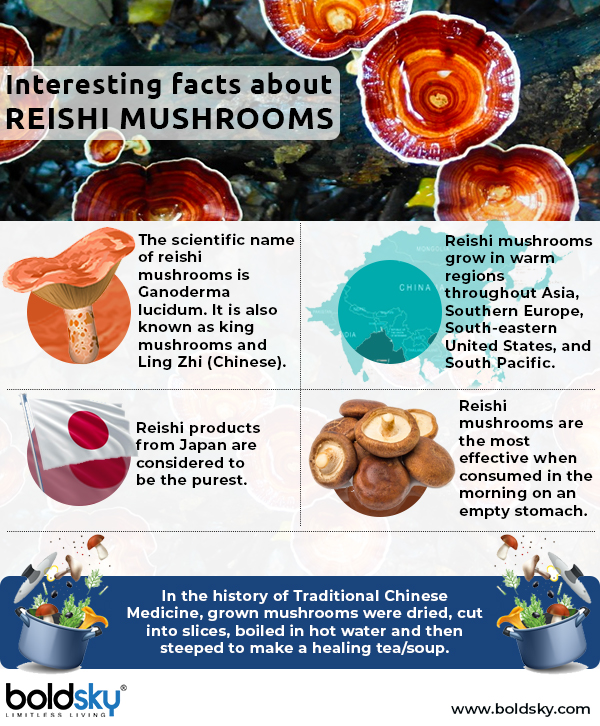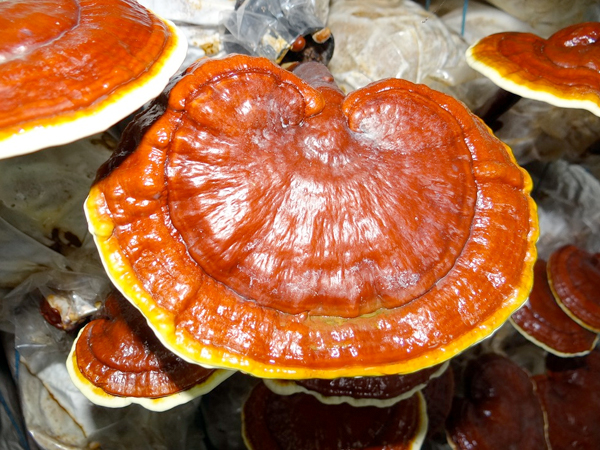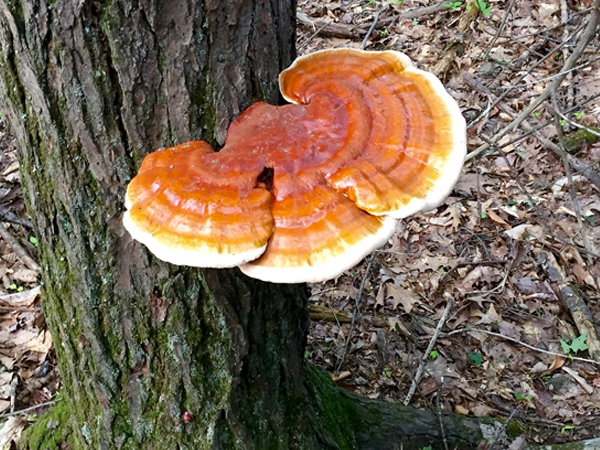Just In
- 17 min ago

- 3 hrs ago

- 3 hrs ago

- 5 hrs ago

Don't Miss
- Finance
 0.50% Dividend Yield: Midcap Cement Stock Slumps 10% Following Weak Q4 Results; Profit Down 48% YoY
0.50% Dividend Yield: Midcap Cement Stock Slumps 10% Following Weak Q4 Results; Profit Down 48% YoY - Education
 Accelerating HealthTech Innovation: Apply Now for BFI-BIOME Fellowships at Venture Center
Accelerating HealthTech Innovation: Apply Now for BFI-BIOME Fellowships at Venture Center - Sports
 When will India squad for T20 World Cup 2024 be announced? What is ICC's official deadline date?
When will India squad for T20 World Cup 2024 be announced? What is ICC's official deadline date? - Technology
 OnePlus Watch 2 New Nordic Blue Colour Option Launched; Here’s How Much It Costs
OnePlus Watch 2 New Nordic Blue Colour Option Launched; Here’s How Much It Costs - News
 EC Takes Action Against PM Modi, Rahul Gandhi For MCC Violations
EC Takes Action Against PM Modi, Rahul Gandhi For MCC Violations - Automobiles
 2024 Jeep Wrangler Facelift Launched In India - Prices Start At Rs 67.65 Lakhs
2024 Jeep Wrangler Facelift Launched In India - Prices Start At Rs 67.65 Lakhs - Movies
 Supriya Menon’s Heartfelt Anniversary Post For Husband Prithviraj Sukumaran: 13 Years With You! Wow!
Supriya Menon’s Heartfelt Anniversary Post For Husband Prithviraj Sukumaran: 13 Years With You! Wow! - Travel
 Escape to Kalimpong, Gangtok, and Darjeeling with IRCTC's Tour Package; Check Itinerary
Escape to Kalimpong, Gangtok, and Darjeeling with IRCTC's Tour Package; Check Itinerary
Reishi Mushroom: Health Benefits, Risks & Recipe
For hundreds of years, reishi mushrooms were among the several medicinal mushrooms that have been used for decades in the traditional medical systems of Asian countries due to its health-promoting effects [1] . More recently, these mushrooms have also been used in the treatment of cancer and pulmonary diseases.
What Is Reishi Mushroom?
Reishi mushroom is a fungus that grows in the hot and humid locations in Asia. It is also known as Ganoderma lucidum and Lingzhi. This particular mushroom contains several molecules, including triterpenoids, polysaccharides and peptidoglycans and comes with a lot of health benefits like strengthening of the immune system and fighting cancer.

Eventhough they taste bitter, but Reishi mushrooms are edible, and have a rough texture. They are often found in the form of a supplement, tincture, or in a mushroom powder form.
Reishi mushrooms produce a 'fruiting body' along with connective strands, which can be turned into herbal medicines, teas, powders, tinctures, and extracts. These mushrooms contain very little calories , a small amount of protein and dietary fibre.

Health Benefits Of Reishi Mushroom
1. Prevents cancer
Reishi mushroom contains cancer-fighting properties. A study has concluded that these mushrooms can kill cancer cells [2] . Also, another study has shown that reishi mushrooms could be beneficial for inhibiting the growth of prostate cancer [3] .
2. Fights depression and fatigue
The consumption of reishi mushrooms could lessen the severity of anxiety and depression. A study showed that, the intake of reishi powder for 4 weeks had reduced fatigue in a group of 48 breast cancer survivors [4] .
3. Promotes heart health
According to a study, Reishi mushroom increases good cholesterol and decreases triglycerides [5] . It aids in preventing clotting of the blood within blood vessels and arteries, lowering inflammation, and blood pressure.

4. Controls blood sugar
Reishi mushrooms contain certain molecules that helps in decreasing the blood sugar level [6] . A review study published in the Journal Phytochemistry showed that, reishi mushrooms are able to lower the blood sugar levels and insulin [7] . These mushrooms also have the ability to improve the manner in which the body uses insulin to transport sugar from the blood to the tissues, so that it can be used as fuel.
5. Strengthens immune system
Reishi mushroom boosts up your immune system, mentioned a study published in the Journal of Pharmacological Sciences [8] . Certain molecules in the mushroom increases the activity of a type of white blood cell called natural killer cells, which fights infections and the cancer cells in the body.

6. Improves liver function
Reishi mushroom works as adaptogens that aids in the proper functioning of the liver and prevents liver diseases. A study published in the International Journal of Medicinal Mushrooms concluded that, reishi mushroom contains antioxidants, which have the hepatoprotective properties that can improve liver function [9] .
7. Fights allergies, asthma & infections
Reishi mushroom contains active ingredients like triterpenes, a type of ganoderic acid that helps in reducing allergies and histamine reactions associated with asthma. This is one of the reasons why reishi mushroom is used as a natural remedy for asthma. Further, Triterpenes present in it also protect the body against viral, microbial, and fungal infections.

Reishi Mushroom In Traditional Chinese Medicine
Reishi mushroom is used as a common ingredient in Traditional Chinese Medicine to enhance the stamina, strength, and vitality, to slow down ageing, to improve heart and liver health. This particular mushroom is also used to calm and relax the mind and is often used in numerous spiritual practices.
Risk Factors Of Reishi Mushroom
The intake of reishi mushrooms will depend on your age, form of the mushroom, health condition for which mushroom is being prescribed, and also on a person's overall health. When used for more than 3 to 6 months, these mushrooms can cause allergic reactions leading to dryness in the mouth, throat, and nasal passages.
Other side effects of reishi mushrooms include rashes, headache, dizziness, itchiness, nosebleed, stomach upset, and bloody stools.
Note: Avoid having reishi mushrooms if you have low blood pressure or if you are under diabetic medications.

What Is The Oral Daily Dose Of Reishi Mushroom
2 to 9 grams of mushroom extract in the form of reishi mushroom powder, capsules or ticntures is enough [10] .
Reishi Mushroom Recipes
1. Reishi mushroom tea [11]
Ingredients:
- 113 g of whole dried reishi mushrooms
- 8 cups water
Method:
- Chop the mushrooms coarsely and grind it to a fine powder.
- Wrap the powder in a muslin cloth.
- Boil 8 cups of water, place the muslin cloth into it and heat until the water has reduced to half.
- Pick out the cloth and drink the liquid warm.
2. Reishi Mushroom Soup With Carrot And Kale [12]
Ingredients:
- 1 tbsp olive oil
- 1 medium sized onion diced
- 4 garlic cloves diced
- 2 carrots sliced
- 2 tbsp grated ginger
- 1 fennel bulb diced
- ¼ cup dried ground reishi mushrooms
- 2 cups Cremini mushrooms sliced
- 2 cups fresh shiitake mushrooms
- 6 cups water
- ¼ cup miso paste
- ½ tbsp thyme
- 3 cups chopped kale
- Sea salt and black pepper as per your taste
Method:
- In a pot, heat olive oil and add the onion and garlic to it. Sauté for 2 minutes.
- Add the ginger and the remaining vegetables (except reishi mushroom powder) and sauté for another 5 minutes.
- Add the water, miso paste, reishi powder, and dried spices.
- Bring to a boil and simmer it for few minutes.
- Cook for 1 hour. Add salt and pepper as per your taste. Enjoy the delicious soup!
- [1] Wachtel-Galor, S., Yuen, J., Buswell, J. A., & Benzie, I. F. (2011). Ganoderma lucidum (Lingzhi or Reishi). InHerbal Medicine: Biomolecular and Clinical Aspects. 2nd edition. CRC Press/Taylor & Francis.
- [2] Liu, Y. W., Gao, J. L., Guan, J., Qian, Z. M., Feng, K., & Li, S. P. (2009). Evaluation of antiproliferative activities and action mechanisms of extracts from two species of Ganoderma on tumor cell lines.Journal of agricultural and food chemistry,57(8), 3087-3093.
- [3] . Liu, Y. W., Gao, J. L., Guan, J., Qian, Z. M., Feng, K., & Li, S. P. (2009). Evaluation of antiproliferative activities and action mechanisms of extracts from two species of Ganoderma on tumor cell lines.Journal of agricultural and food chemistry,57(8), 3087-3093.
- [4] Zhao, H., Zhang, Q., Zhao, L., Huang, X., Wang, J., & Kang, X. (2012). Spore Powder of Ganoderma lucidum Improves Cancer-Related Fatigue in Breast Cancer Patients Undergoing Endocrine Therapy: A Pilot Clinical Trial.Evidence-based complementary and alternative medicine : eCAM,2012, 809614.
- [5] Chu, T. T., Benzie, I. F., Lam, C. W., Fok, B. S., Lee, K. K., & Tomlinson, B. (2012). Study of potential cardioprotective effects of Ganoderma lucidum (Lingzhi): results of a controlled human intervention trial.British Journal of Nutrition,107(7), 1017-1027.
- [6] Xiao, C., Wu, Q. P., Cai, W., Tan, J. B., Yang, X. B., & Zhang, J. M. (2012). Hypoglycemic effects of Ganoderma lucidum polysaccharides in type 2 diabetic mice.Archives of pharmacal research,35(10), 1793-1801.
- [7] Ma, H. T., Hsieh, J. F., & Chen, S. T. (2015). Anti-diabetic effects of Ganoderma lucidum.Phytochemistry,114, 109-113.
- [8] Lin, Z. B. (2005). Cellular and molecular mechanisms of immuno-modulation by Ganoderma lucidum.Journal of pharmacological sciences,99(2), 144-153.
- [9] Wu, X., Zeng, J., Hu, J., Liao, Q., Zhou, R., Zhang, P., & Chen, Z. (2013). Hepatoprotective effects of aqueous extract from lingzhi or reishi medicinal mushroom Ganoderma lucidum (higher basidiomycetes) on α-Amanitin− induced liver injury in mice.International journal of medicinal mushrooms,15(4).
- [10] Klupp, N. L., Chang, D., Hawke, F., Kiat, H., Cao, H., Grant, S. J., & Bensoussan, A. (2015). Ganoderma lucidum mushroom for the treatment of cardiovascular risk factors.Cochrane Database of Systematic Reviews, (2).
- [11] https://cooking.nytimes.com/recipes/9690-reishi-tea
- [12] https://80twentynutrition.com/recipe/reishi-mushroom-soup-with-carrots-and-kale/
-
 healthDo You Keep A Clove Of Garlic Under Pillow? Not To Keep Vampires At Bay, There May Be Scientific Reasons
healthDo You Keep A Clove Of Garlic Under Pillow? Not To Keep Vampires At Bay, There May Be Scientific Reasons -
 healthGet Your Groove On: 5 Health Benefits Of Dancing To Afro Beats
healthGet Your Groove On: 5 Health Benefits Of Dancing To Afro Beats -
 healthIndigenous Delicacies: 5 Rare Indian Wild Foods That Are So Healthy You Should Try It!
healthIndigenous Delicacies: 5 Rare Indian Wild Foods That Are So Healthy You Should Try It! -
 healthHaving Chicken Soup At Home Can Cure These Health Issues
healthHaving Chicken Soup At Home Can Cure These Health Issues -
 healthBoost Your Health with Beetroot: Health Benefits And Ways To Add The Colourful Veggie In Your Diet
healthBoost Your Health with Beetroot: Health Benefits And Ways To Add The Colourful Veggie In Your Diet -
 healthHealth Benefits Of Garam Masala: From Digestion To Weight Loss, Proper Use Can Yield Many Benefits
healthHealth Benefits Of Garam Masala: From Digestion To Weight Loss, Proper Use Can Yield Many Benefits -
 healthAyurvedic Wisdom: Panchamrit's Surprising Health Benefits
healthAyurvedic Wisdom: Panchamrit's Surprising Health Benefits -
 healthUnveiling the Power of Turmeric Ghee: An Ancient Ayurvedic Secret!
healthUnveiling the Power of Turmeric Ghee: An Ancient Ayurvedic Secret! -
 healthPlant-Based Diet And Nutrition: Your Key To A Stronger Immune System!
healthPlant-Based Diet And Nutrition: Your Key To A Stronger Immune System! -
 healthExperience the Healing Power of Indian Herbal Teas!
healthExperience the Healing Power of Indian Herbal Teas! -
 healthInternational Cat Day 2023: Did You Know That Cat Purring Can Benefit Your Health? Check Out How!
healthInternational Cat Day 2023: Did You Know That Cat Purring Can Benefit Your Health? Check Out How! -
 healthHeart-Healthy Breakfast: Discover The Benefits Of Frozen Strawberries
healthHeart-Healthy Breakfast: Discover The Benefits Of Frozen Strawberries


 Click it and Unblock the Notifications
Click it and Unblock the Notifications



